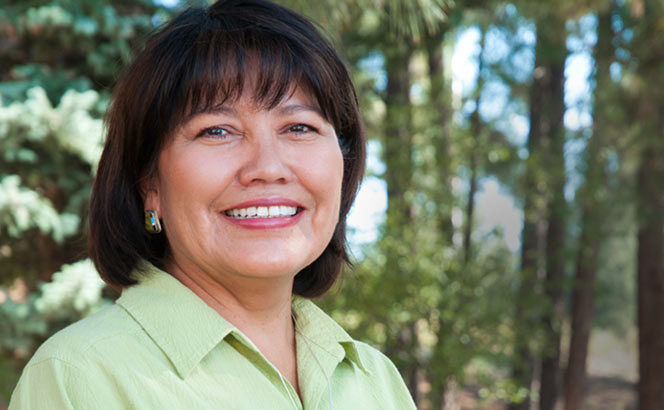The National Institutes of Health’s National Institute on Minority Health and Health Disparities has awarded a $6 million grant to create a Center for American Indian Resilience at Northern Arizona University.
Priscilla Sanderson, assistant professor of health sciences and applied indigenous studies at NAU, and Nicolette Teufel-Shone, University of Arizona associate professor of public health, will lead the new center, known as CAIR.
The grant is a collaborative partnership between NAU’s College of Health and Human Services, the University of Arizona Mel and Enid Zuckerman College of Public Health and Diné College.
The five-year project will create partnerships among health researchers and tribal communities to identify, research and teach approaches that take advantage of long-standing Native American cultural practices that promote health.
“CAIR research will deepen our scientific knowledge of existing positive health outcomes in tribal communities, and then we will translate this knowledge to practice through public health education and policy,” said Sanderson, a member of the Navajo Nation.
In a public health context, Sanderson said, resilience entails the positive traits and personal strategies that allow even those with difficult health conditions to persevere.
“Some people are able to get beyond health challenges,” Sanderson said, noting disparities such as diabetes and obesity faced by Native Americans. “We want to find out how to build the skills to endure hardship and improve the ability to cope.”
A summer research enhancement program at Diné College will train high school and college students about resilience models and research tools, with the involvement of community mentors.
“We’re trying to encourage young Native Americans to get a college education and become researchers or go into health professions,” Sanderson said. “We hope they will go home to the reservation and implement these strategies.”
CAIR’s four core areas—administration, research, research training/education and community engagement/outreach—will receive guidance from an executive advisory board and community advisory board that represent American Indian scientific and community leaders.
Additional NAU faculty and staff contributing to CAIR include Leslie Schulz, executive dean, College of Health and Human Services; Robert Trotter, Regents’ professor and chair of anthropology; Roger Bounds, associate professor and chair of health sciences; Lisa Hardy, research assistant professor; R. Cruz Begay, professor of health sciences; and Kelly Laurila, coordinator in anthropology. Paul Dutton, director of NAU’s Interdisciplinary Health Policy Institute, will facilitate the executive advisory board.
Additional UA participants include John Ehiri, director and professor, Division of Health Promotion Sciences; Rebecca Drummond, program director for Family Wellness; Agnes Attakai, director of Health Disparities Outreach and Prevention Education; and Maria Glowacka, research associate. Diné College faculty on the project are Mark Bauer and Jeanne Lawless.



